Grüße aus Wien! That means Greetings from Vienna, for my followers (my mother).
I am in Vienna for the month of August, in order to take a language course. Ostensibly. In reality, I signed up for the language course in order to have an excuse to be in Vienna. Now that I’m here, I don’t need the course, right?
I am dropping out of the language course, because I learned about sunk costs in high school economics, and because it turns out after all these years I am autodidactic. I have always been in the weird position of being a smart kid who had trouble in school, but as I’ve gotten older and more relaxed, I’ve attributed my rebellious attitude to youthful energy and ignorance. Now being back in a German class, I recall precisely how it feels to be in a structure that doesn’t work for me, except this time, I don’t need anything from the program except for it to work. I’ve taken German courses twice, and ended up so frustrated — I could barely string together a sentence — that I gave up on German. Over the past year, the fire got reignited and I studied intensely on my own, and experienced a lot of success.
I can’t spend 6 hours on class and classwork to not learn German well. I’ve got to study on my own, or else walk around for six hours a day like an insane person, closely reading all the street signs and parking tickets. Um.
Photo series made during my decision to uhh not go to class anymore
I have gotten a LOT of compliments on my German, which is so cool. The main thing that people say is that I speak very fluently and naturally and that they are surprised I’m American. Then they ask how I learned such good German and why. I’m not kidding! I’m bragging. I’m also just saying. I don’t have a certificate so just saying is all I’ve got.
“Fluency” is an interesting concept. At its core, it just means flowing. I can speak simple German in a flowing, natural way without a strong accent. But there’s a lot I can’t say, and I make a lot of mistakes. Can you speak a language fluently at a low level?
A lot of people get to a relatively high level of speaking, with fewer mistakes than I make, and a larger vocabulary, but speak in a choppy, unnatural manner, as if from a mental place.
I think that I cannot do that. My brain can’t hold enough abstract information to make that work. I think that when something flows, it lives in your body. And you can feel when some new knowledge is getting into your body. I don’t think any teacher can tell you exactly what you need for it to happen. Or at least they can’t tell me. I don’t even know what I will need the next time I learn something. So when a concept is introduced in a class, we do a short exercise on it, and move on, it’s like getting a nibble on a fishing line but not being able to wait for the fish to bite, not being able to reel it in. And then if the homework doesn’t match my learning needs either, I’m rushing through hours of homework to try to get a moment with my own needs, and there’s no time to inspect parking tickets.
I saw a hilarious parking ticket this morning. It was printed on white paper and said something like this:
Very honorable Vehicleowner/Very honorable Vehicleownerette,
Onthegrounds of Parkinghereisforbidden or Vehicletypeisforbidden, your Vehicle will be through Craneoperation verlocationgechanged.
It is really such a kick to be able to understand or deduce most written information. It is so different from the other times I’ve been here. One thing I’ve been excited about is reading the written information about various monuments. I was reading the written information about a memorial for holocaust victims, aloud to myself, quietly (reading aloud is very helpful), when some white guy came up and stood near me. After I finished I explained (in German) that I was learning German. He explained in extremely choppy English what the caption was about. And he gave me real-time chills, because he used air-quotes when saying that it was dedicated to the “so-called ‘wictims’ of ze Sird Reich.”
What a scary fucking thing to comfortably say to a stranger. My AirBNB is just on the border the “Jewish district,” and to walk to the streetcar I pass over a plaque in front of an apartment building that lists names and life dates of Jewish people who were taken from their apartments, brought to camps, and murdered.
I didn’t react in the moment, all of my Libra harmonizing mechanisms kicked in. Besides, we were clearly guests to each other’s languages. Perhaps this was a cultural misunderstanding, perhaps his English was not high-enough level to understand the connotations of calling something “so-called,” perhaps he just didn’t know the best translation for “Opfer,” right? Just a nice normal guy from Voralberg helping out a tourist.
Plaque I step over on the way to get to the streetcar, denoting names, dates, birthplaces, and death camps of Jewish people who were deported from the particular apartment building it’s the plaque is in front of and murdered
Detail from a stirring memorial art piece in front of the… um… in front of another church which names Jewish people in the surrounding neighborhood who were forcibly deported and murdered, along with house keys I suppose to represent their homes they had to leave
Not the memorial I met the neonazi in front of, but a different one. I can translate this whole caption. Here it goes: “NEVER FORGET Here stood the house of the gestapo. It was for the Austrians who knew it hell. It was for many of them the Vorhof of death. It is sunk in shambles/ruins just like the thousand-year reich. Austria though has stood up again and with it its dead, the immortal victims.”
On the other side of things, I did finally meet up with my tutor Bianca, with whom I had a few conversations on Preply. I signed up for private lessons because I thought I needed “structure,” but when Bianca gave me some worksheets I completely withered and forcibly rerouted our sessions into conversation practice. This was good, because it inspired me to actually “work on my German” before our sessions, whereas whenever she gave me actual homework I just ignored it because it was not mandatory. Bianca is a bit esoteric like I am and I have felt we are aligned in most ways politically, but I was really happy to discover that she also opposes the genocide of Palestinians. That opinion is much rarer in Germany and Austria, because so much holocaust guilt is bound up with the idea of Israel, and to take a stance that could be interpreted as opposing Judaism in any way is extremely touchy. “The point is that there should be no more holocausts,” said Bianca in a low voice, “not that holocaust should be committed on behalf of Jewish people!” To me this is clear, but in America, the conversation is much more open. In Austria and Germany, the emotional cognitive dissonance makes things really cloudy inside people’s heads, and extremely difficult to speak about outside of it. To me one of the strongest weapons against this, and what has enabled people like Bianca to be free from the matrix of cognitive dissonance, is clarity of thought. I can best promote it if I practice it, which is what I am doing by sitting here and using my brain to write.
Bianca ordered Wienerschnitzel and I ordered a “Clubsandwich,” both of us staying firmly within our cultural stereotypes. BTW apparently this Schnitzel is very good and quite well-priced so if you’re ever coming to Vienna and want some Schnitzel I know where to send you.
Trying to speak and understand German has given me so much appreciation for the clarity of my mind. Understanding spoken German as it emerges in regular conversation and between low-key transactions with strangers is insanely difficult. Even when I know all the words, even when the person is speaking relatively clearly, odds are like 30-70 ok maybe 50-50 I will not understand what the heck they said. And if by grace I am able to understand the sentence, my brain is so sparky from trying to situate itself amid the intense emotions of striving to understand that I have lost the thread of the conversation, and what they’ve said starts an entirely new topic. I feel completely at the mercy of … something. Like, the person I’m talking to, I guess. And also society in general. And I feel intensely appreciative of the fact that I have a native language to return to.
As a learner, I have found it useful to distinguish two types of target-language listening. The first is active listening, where you try to understand what’s being said. This generally involves mental calculation and translation. These activities take time, but communication needs to be instantaneous, so you need to calculate very fast, to imitate instantaneousness. The second is passive listening I guess, and it isn’t just putting stuff on in the background. It’s passive but you are indeed listening. You have attention but it’s not pointed, where you just take in the sound of the words and don’t try to connect them to meaning. It’s almost like fuzzing your ears, like how you fuzz your eyes. You take in the sounds with your ears and allow your attention to like… caress them and grace them, like looking at an abstract painting. You might get a little ping of “Hey I know this word!” but you don’t follow it, you just stay on the surface, glassy, letting the words glint and gleam under your recognition like ripples in the sun. In this mode of listening, you aren’t engaging the calculative parts of your brain. You’re allowing the words to gently matrix themselves on the surface of your subconscious, and from there potentially to crystallize into semantic understanding. Then meaning springs to your awareness just like it does in your native language, and words become words instead of ciphers.
The second way is way better. Waaaay better.
I find that it is just not at all available when someone is talking to you. NOT AT ALL. When someone is talking to you — ok I’ll speak for myself, when someone is talking to me — I get into that first mode, translation mode, hardcore. Except, as I said, it’s like there’s an earthquake going on, because there’s someone with eyes that lead into their soul looking into my eyes, there are different strings of potential actions that will be put into place depending on what I say, and because I’m a guest to the language, my senses are uniquely primed to taking in non-syntactical information to help direct me through things, which means I’m alive to everything — everything in the room, and especially all of the expectations in my head about what will happen next. So basically no matter what anyone says, I end up barking out “WIE?” like a caveman. Not even a polite “Wie, bitte?”
Okay, I’m not gonna look at this and post it, and study some German now. If I don’t go to this class I really need to write every day, to do something to make sure my mind is working, otherwise I’ll just walk around the streets literally all day long without even going into any of the stores or anything, and I’ll become an actual ghost.
Advice from a shop window
The streets that compel me to walk down them like a maniac


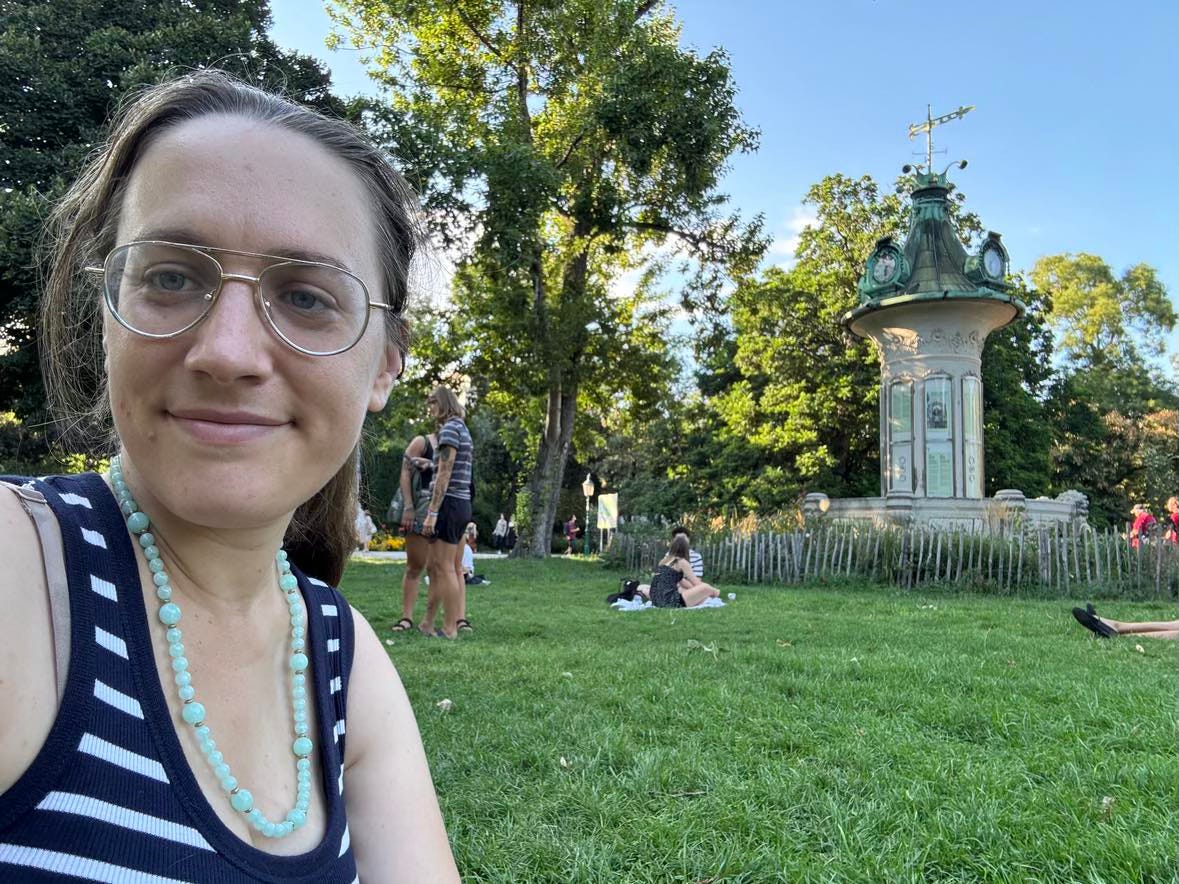
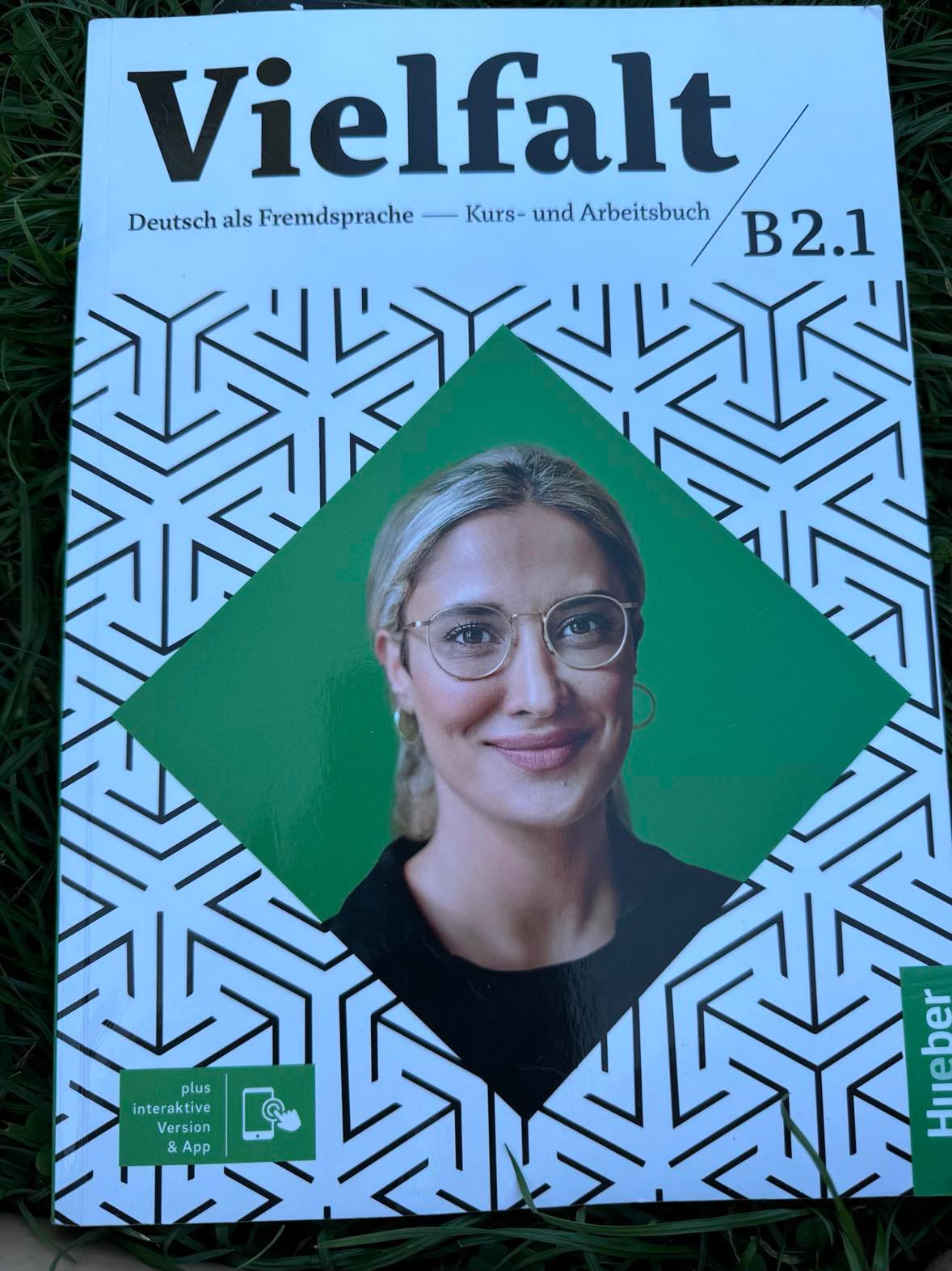
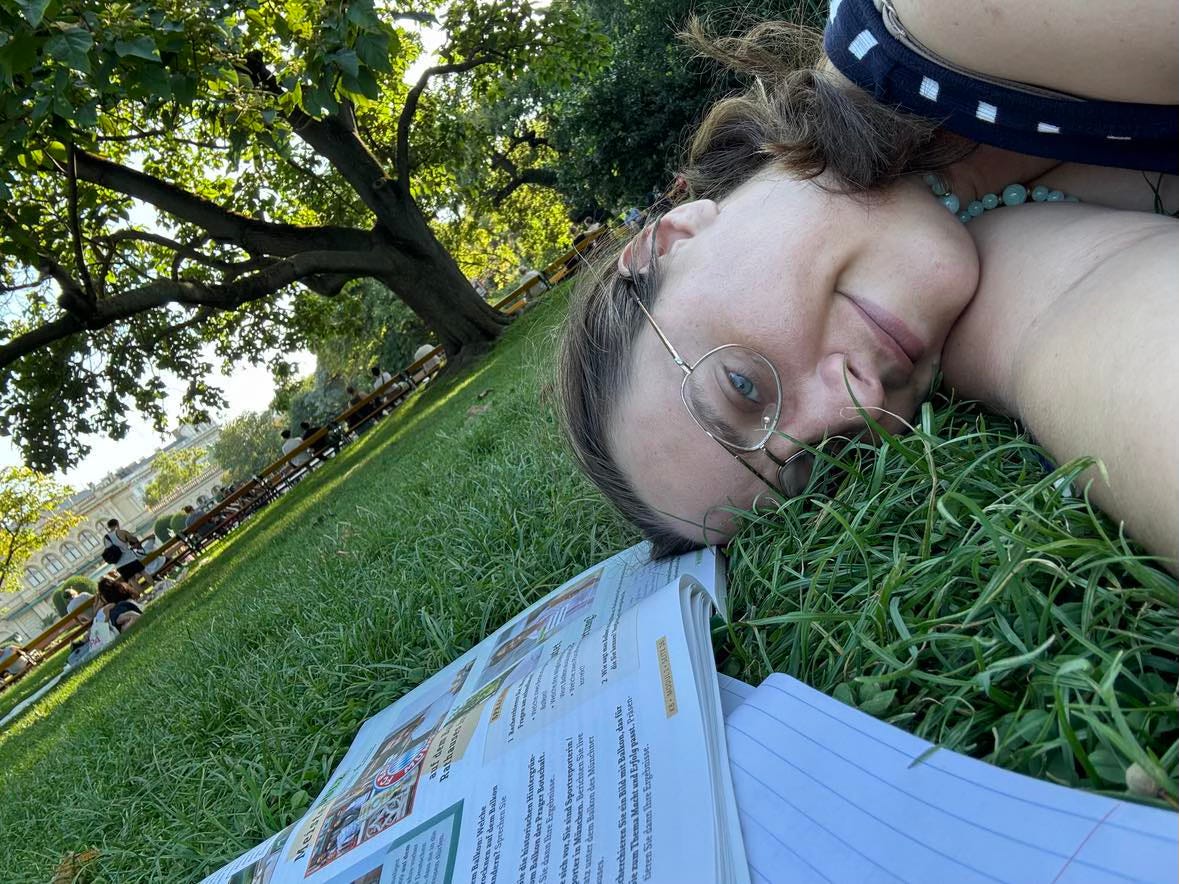
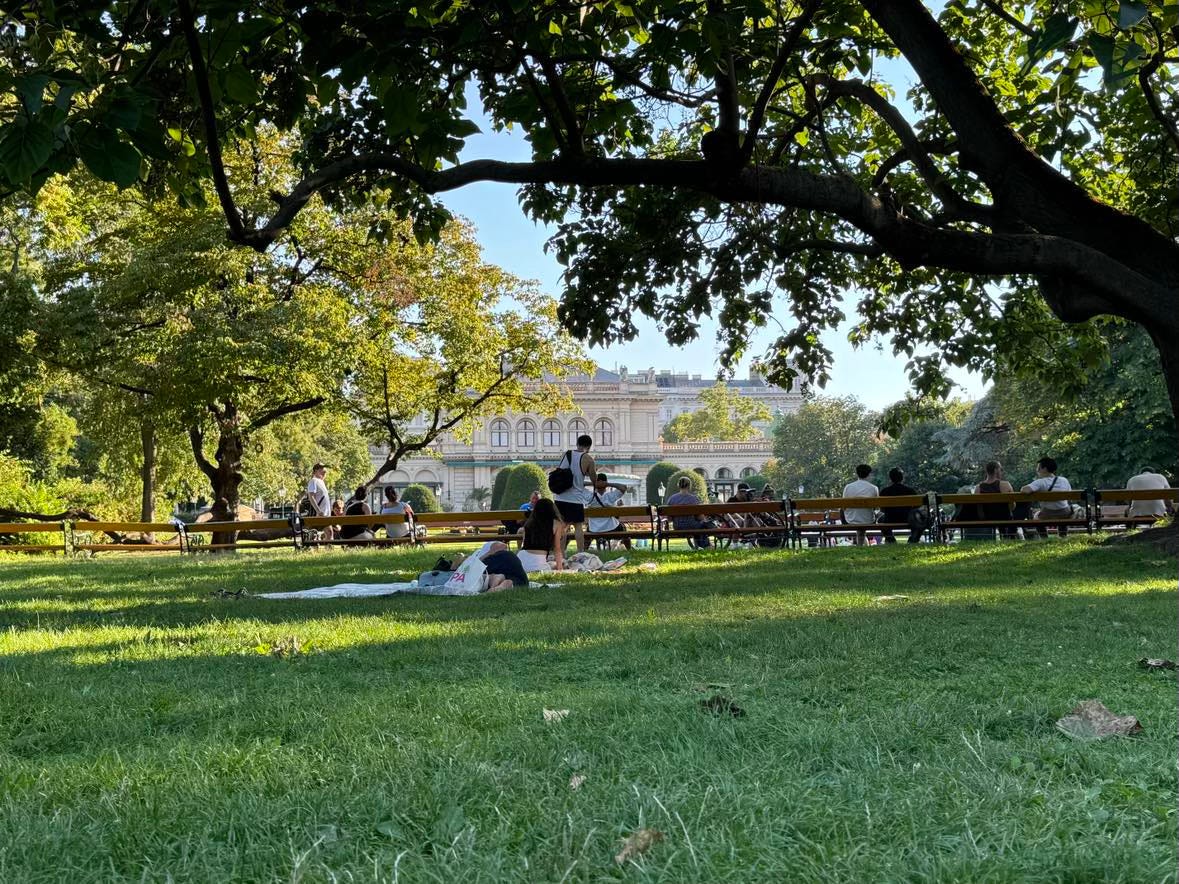
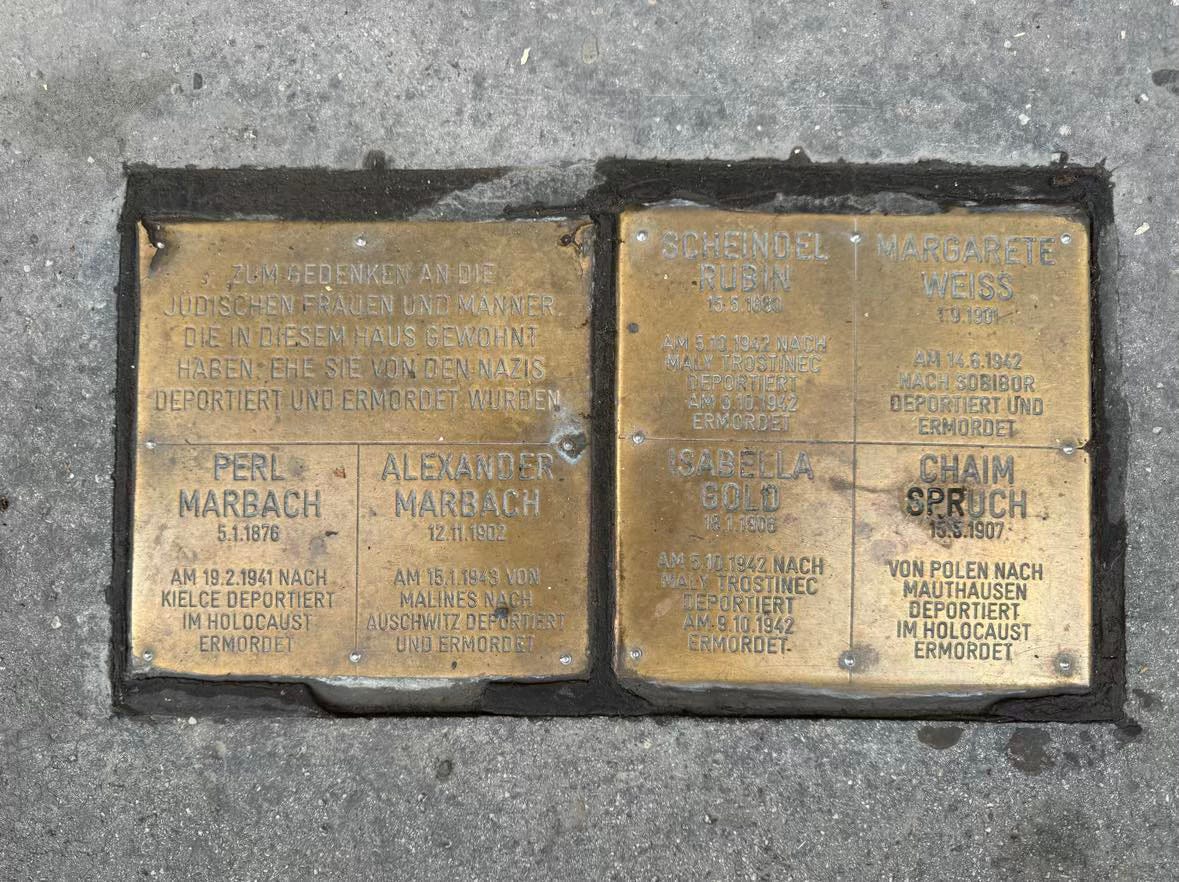


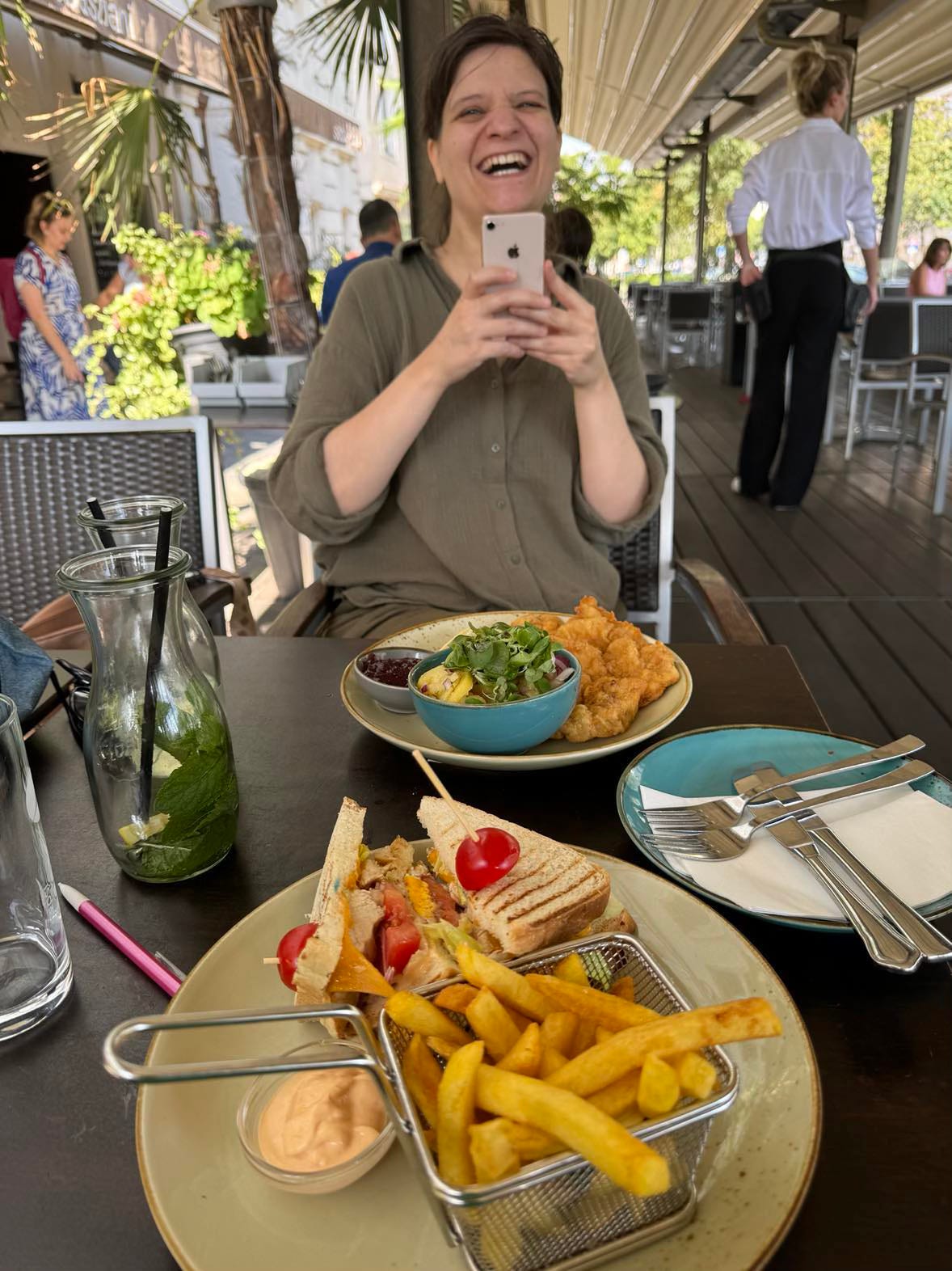
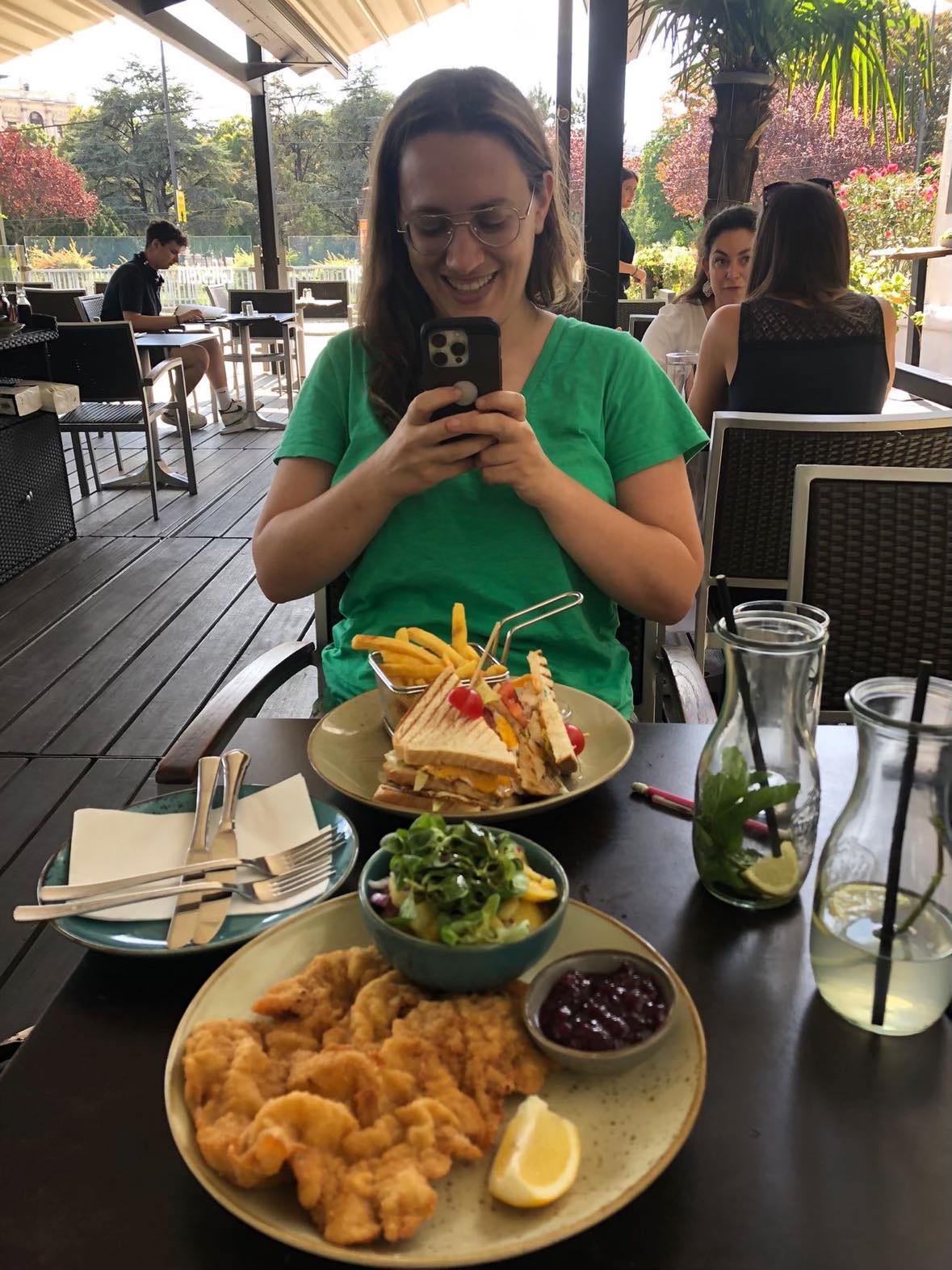
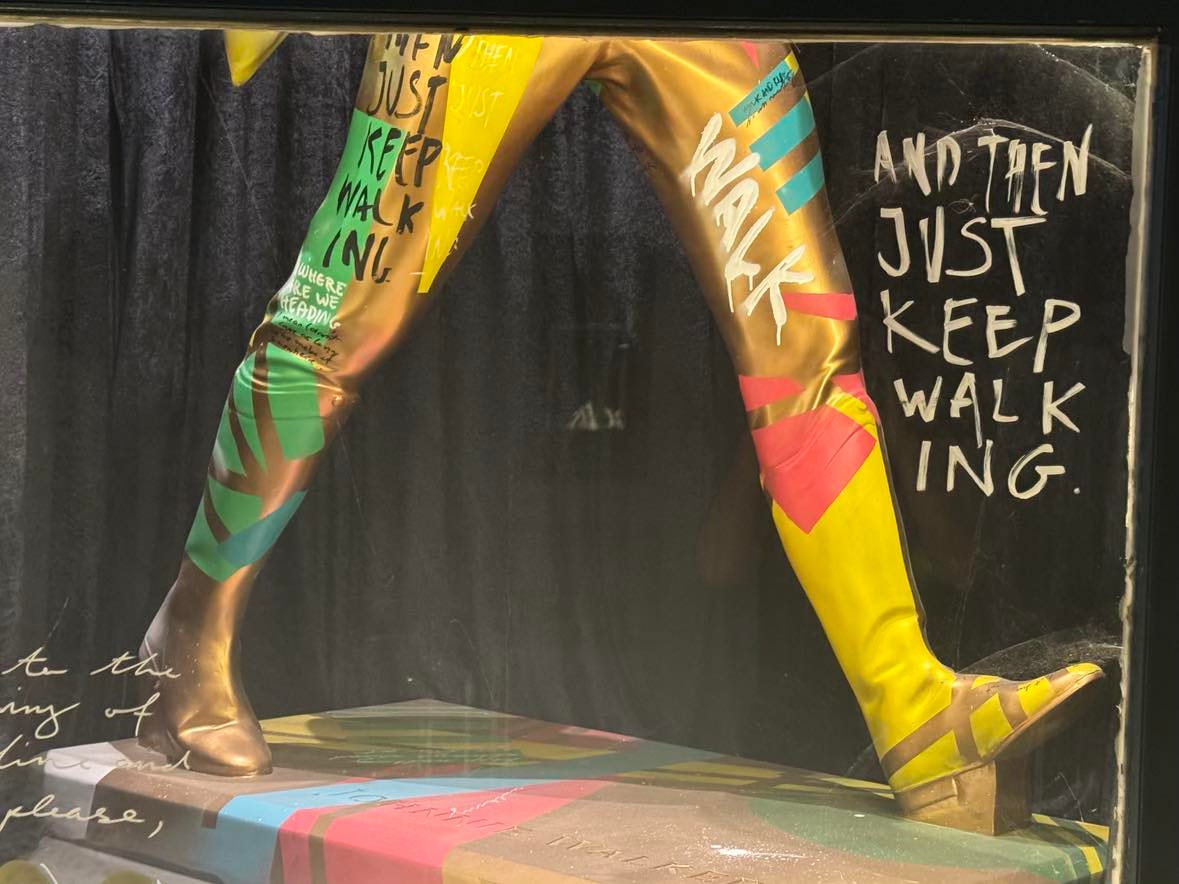
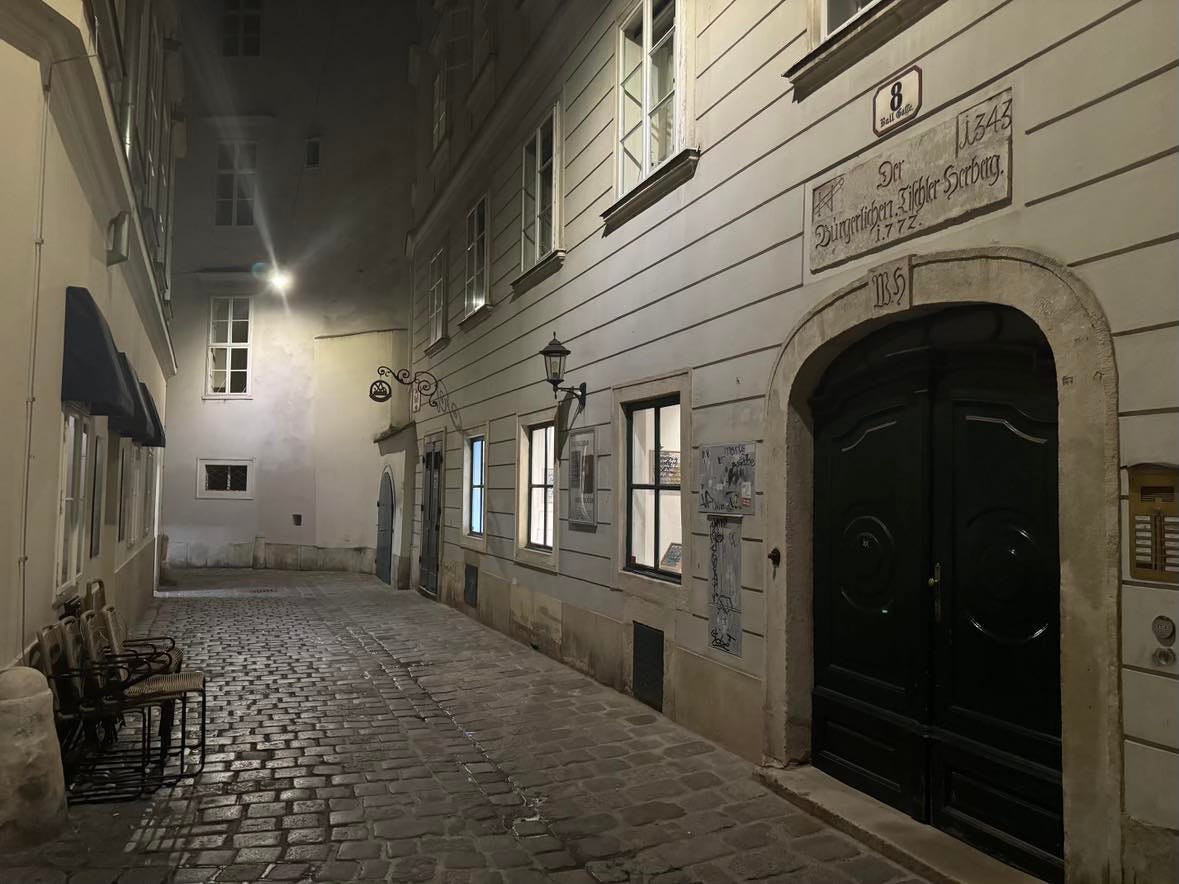
Fascinating peek into your brain, as always, Emma. I love reading about your language experience. -Mama